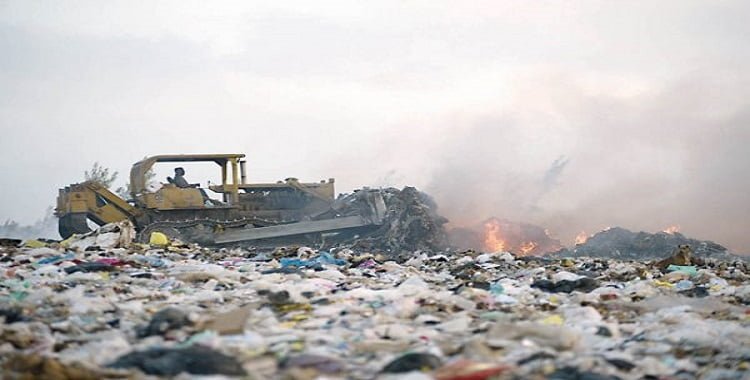Chairman says offer could bring ‘significant’ savings to the government and employment for Bahamians
NASSAU, BAHAMAS – The New Providence landfill’s new manager believes the firm can clean up Hurricane-ravaged Abaco in six months at a ‘significant’ cost savings to the Bahamian government.
Felix Stubbs, Chairman of the New Providence Ecology Park (NPEP) said the landfill manager believes it can replicate the success of its landfill clean up efforts on Abaco utilizing Bahamian labour and expertise, while offering ‘significant’ cost savings to the government.
Mr Stubbs said the company has already submitted its proposal to the government.
“After Hurricane Dorian we immediately made our technical services available to the government for advice and guidance. Now we think we are in a place where we can start doing clean up. What we have done at the landfill we believe we can do in Abaco,” he said.
“We are offering our services to the government for a fee. We think the fee is significantly less than that of any foreign company coming in. We think we can cleanup it up in six months, not cost the government an enormous amount of money and we can do it with Bahamian labour. We have made a proposal to the government and we hope they will look on it favorably.
He continued: “We know that we can do it in six months. My guys tell me that there is something like thirty years of waste we have to discard. We don’t want to discard the waste in a way that is harmful to the environment. It’s going to be labour intensive. That will bring some young Bahamians onboard who can learn about the landfill.”
Back in mid-September, Environment Minister Romauld Ferreira told reporters that the Ministry of Environment and Housing was in the process of formulating a debris management plan for hurricane ravaged Abaco and Grand Bahama, noting that the cost of the exercise would likely be in the tens of millions of dollars.
“We estimate that there is going to be about two million cubic meters of debris generated in Abaco,” the minister said.
“That equates to about 1.5 billion pounds of debris. We have identified potential lay down sites and a key feature of the plan is we hope to take these items out of the country.
At the time, Ferreira said: “Obviously, such large amounts are going to overload the landfill. We have to separate the debris; concrete, rubble, vegetative debris and metals. There is actually a boat sitting on top of a roof in Marsh Harbour which gives you an idea of how high the sea surge was. The waste has to be collected, sorted and it has to be reduced to a volume, which usually means a shredder or some cutting devices.”
Last week, the landfill’s new manager touted its transformation of ‘the dump’, a once open waste dumping ground into a “clean, safe and organized parked, one hundred per cent compacted, capped and contained”.
Following a site tour, Stubbs told Eyewitness News the company has created roads and established specific treatment areas for the various types of waste received.
NPEP currently employs 65 people, and has established systems to reuse and recycle waste sustainably, Stubbs said.
Tires brought to the park are reused within the site’s ecosystem to create defined roads. Organic materials, including cardboard and green waste, are shredded and turned back to soil.
Stubbs said recycling will be a big part of the NPEP plans going forward.
“Recycling is going to be a big part of what we want to do. We think we are probably a year before we start recycling. If we do proper recycling we could recycle 40 per cent of the household garbage and up to 15 per cent of the construction garbage and use it for road building, for our golf course, for construction and mulching,” he said.






